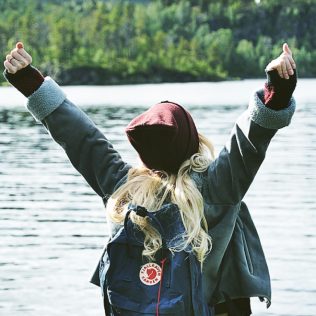If you’re looking to explore a new culture filled with interesting folklore, unique cuisine and incredible hospitality, look no further than Iceland. Icelandic culture, history, and people are some of the main reasons why Iceland has become such a popular travel destination beyond the incredible natural landscapes. So, we’d like to show you a snippet of what to expect from the locals in Iceland.
We’ll cover ten facts about Icelanders and our culture, from the language to the cuisine and everything in between. Get ready for the insider’s scoop on everything to expect when you visit this incredible island!
- Related Link: Iceland car rental requirements ; Driving in Iceland
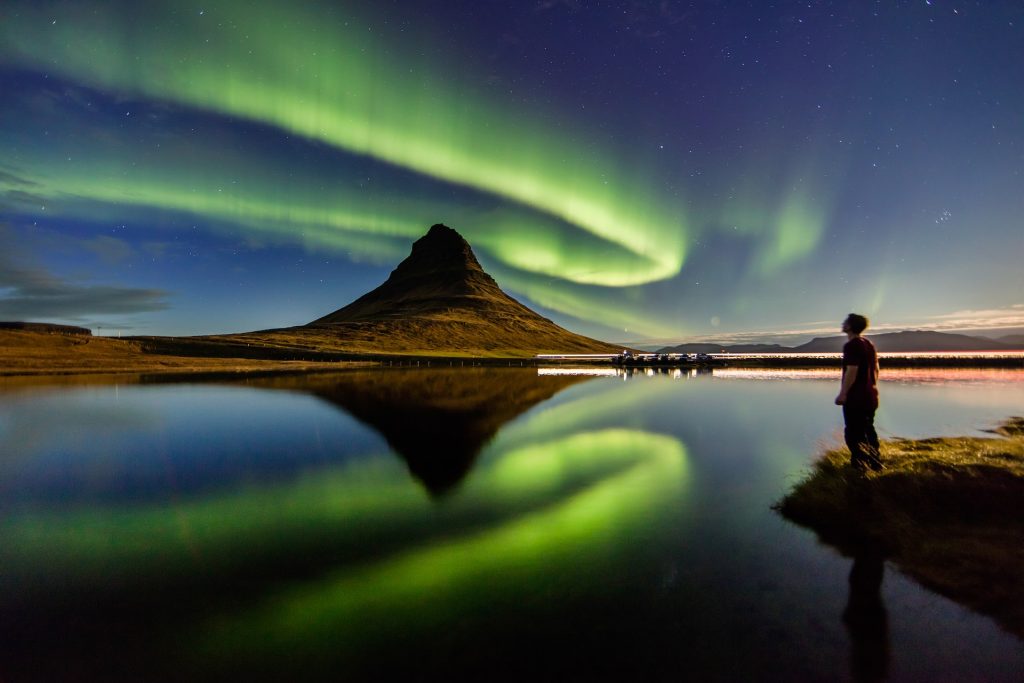
1. Icelanders can still read old Norse
Just like the gods they descended from, the people of Iceland can still speak and read the Old Norse language, the country’s most prevalent local language. The language is still spoken by approximately 97% of Icelanders and is still as pure as in the olden days. The Old Norse language has never really changed because Iceland is a remote country that has not been influenced by as many external cultures as most other colonized countries.
The people of Iceland have also worked to maintain their language by purposefully avoiding outside influences. Even though Iceland has been home to many nationalities speaking various languages, any slang or common phrases brought over by foreigners have been intentionally adapted to suit the Norse language.
Even while they were under Danish rule in the 19th century, they managed to keep their identity and continued establishing their language after gaining independence. This has resulted in the preservation and popularity of the exact same language that first dwellers spoke when they came to Iceland.

2. Icelanders love to socialize in the swimming pools
You’re probably aware of Iceland’s incredible geothermal pools, baths and hot springs, but you may not know just how much Icelanders love their swimming pools. While tourists may enjoy the warm embrace of Iceland’s many geothermal baths, these pools mean a lot more to the local Iceland people.
They serve as a hub for Icelanders to socialize and build relationships amongst each other. It has been a part of Iceland’s culture to congregate at the geothermal pools to share experiences and relax since the days of the early settlers. On top of that, the water in the geothermal baths is very mineral-rich, so it protects the skin and provides a range of health benefits.
Icelandic literature dating to the 9th and 10th centuries talks about the geothermal pools where locals went to bathe and wash their clothes. Since then, the pools have taken on greater significance in the local culture, and people are now even encouraged to learn how to swim before they can fully walk. There are swim classes for toddlers as young as three months old, and swimming education has been compulsory in elementary schools since 1943.
The intent is to get everyone as familiar with the water as possible so they can partake in one of Iceland’s most popular cultures of gathering as a community or group of friends in one of the pools that can be found within every province of Iceland.
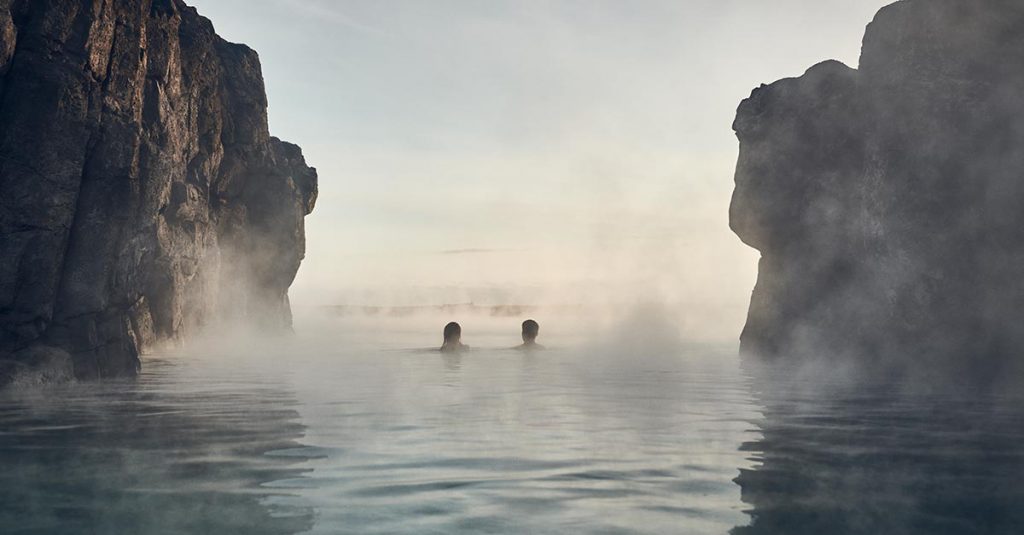
3. Icelanders love ice cream, regardless of what season it is
If you’ve got a sweet tooth, then Iceland is the perfect place for you because Iceland people love the sweeter things in life, especially ice cream. Whether you like a delicious gelato on a hot summer’s day, a soft swirl in a cone, or a vegan alternative frozen treat without dairy, Iceland has some of the best ice cream selections to suit your every desire.
You would think Iceland would have little need for ice cream, with sunny days of summer few and far between, but the Icelandic people’s love for ice cream goes beyond necessity into a mild obsession.
Even on the coldest day of Iceland’s winter, you can expect to see lines outside the local ice cream parlour filled with people desperate to get their favourite treat. Ice cream parlours and trucks are so popular in Iceland that you can go on a tour specifically to enjoy ice cream locations. There is even a word ísbíltúr in Icelandic that translates to “ice cream car tour”, which signifies just how intentional people from Iceland are about enjoying their ice cream.
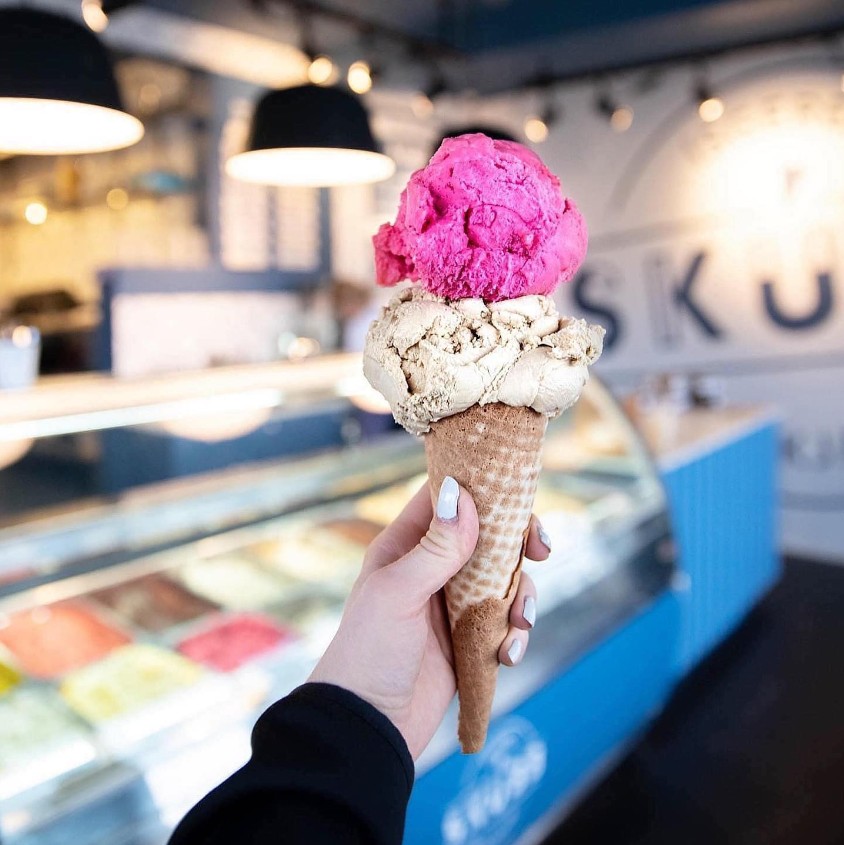
4. Icelandic people do not have a surname/family name
Icelandic naming culture, like their language, is also unique to Viking nations. While most societies rely on familial names or surnames for identification, Iceland has a patronymic naming system. This means that a child’s surname is a combination of their father’s first name and their gender. A suffix of ‘son’ is used for a male child, while a suffix of ‘dottir’ is used for a female child.
Either one is used in conjunction with the child’s father’s name to form an entirely new name, such as Gunnarsson or Gunnarsdóttir, where the father’s first name is ‘Gunnars’. This means that children of the same parents who are of different genders will usually have different surnames, which is unusual for most societies. Women also do not take their partners’ names because that would render the naming system void since they cannot become ‘sons’ of their father-in-law.
Despite the widespread norm of Iceland’s naming cultures, some families still have familial surnames. However, these are mostly Iceland families married to foreigners and people who still practice Danish culture from when Iceland was under Denmark’s rule.
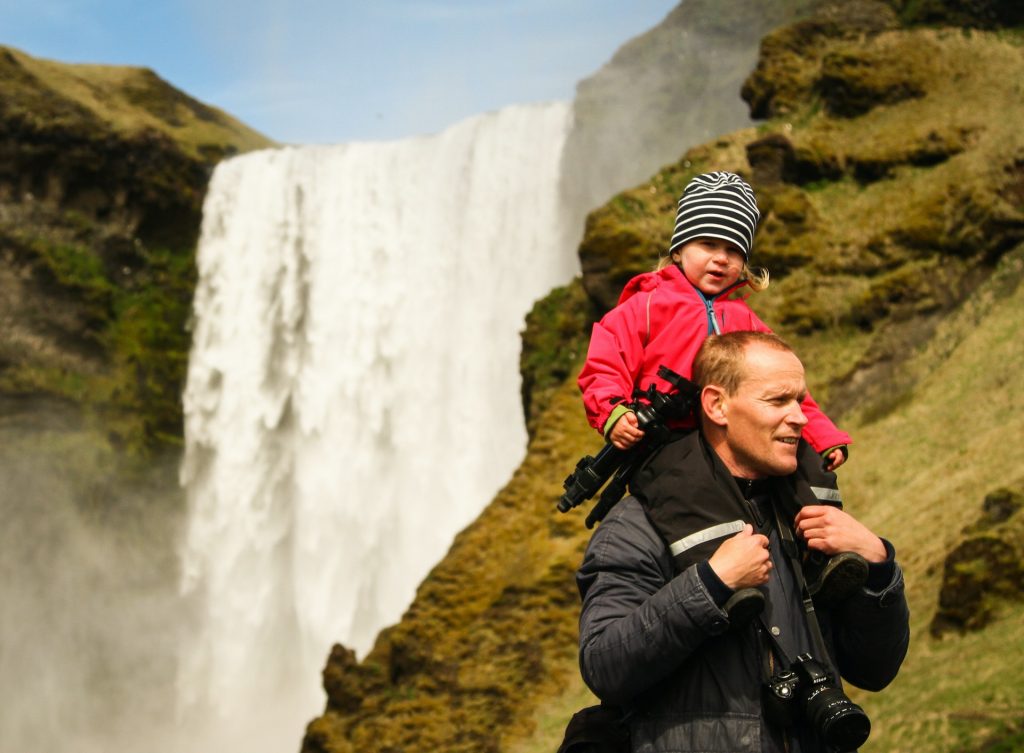
5. People in Iceland LOVE monster trucks
Iceland is famous for its mountain and dirt roads, which can sometimes be a challenge to drive in smaller vehicles, especially during the winter months. This terrain has led to a growing culture of monster truck lovers since these giant vehicles seriously aid driving in the region.
Outside the major roads like the Ring Road, which is entirely paved and suitable for any type of car, the usefulness of 4WD cars becomes immediately apparent as you hit roads with dirt tracks and pot-holes, roads sheathed in ice, or broken up by glacial rivers.
It’s very normal to see people from Iceland with monster trucks, so do not be afraid to rent one yourself, regardless of the time of the year. You never know when the unpredictable Iceland weather will change and necessitate driving one of these big boys. You can rent a 4WD vehicle in Iceland here.
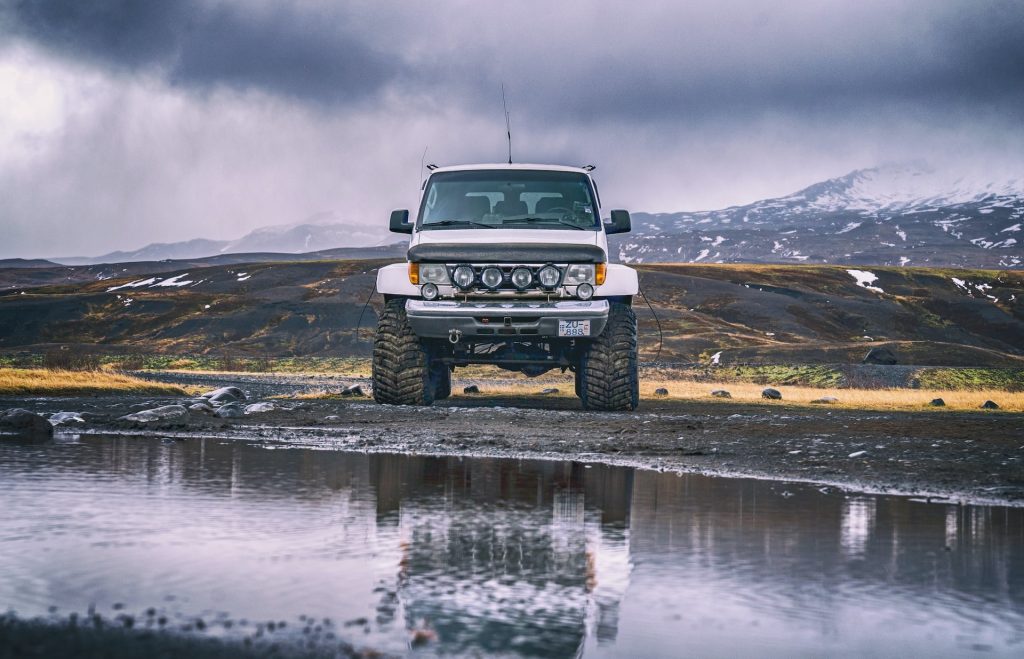
6. Many Icelandic people still believe in elves
Believe it or not, Icelandic people are convinced of the existence of elves. In a National Geographic survey, they found that at least 54% of Icelanders either expressly believe in elves or say that it’s possible that they exist.
There are even road diversions which have been created to guide road users outside the paths where elves are believed to reside so they don’t disturb their natural habitats. To learn more about the elves or álfar history in Iceland, you can take the “elf walk” in Hafnarfjörður, a harbour town just outside Reykjavík, which is believed to be the elf headquarters in Iceland. (Psst, Hertz Iceland car rental company’s headquarter is also located in Hafnarfjordur)
You can learn more about the Icelandic people’s belief in elves and specifics about the elves themselves, including how tall they are, what they wear, and how many life-saving feats they have pulled off.
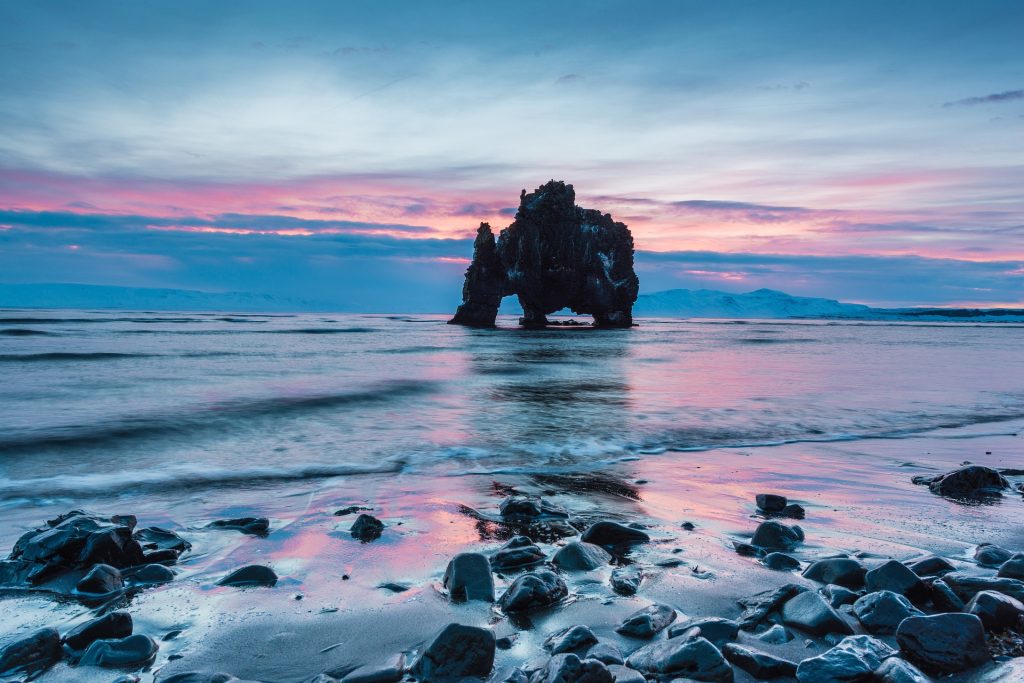
7. The easiest way to make friends with Icelanders is over a beer
Icelandic people are known to be warm and friendly, but even the most friendly people still need something to bond over. The most common road to friendship for Icelandic people is over a delicious and refreshing beer. When you visit, you will find it hard to believe that beer was actually once banned in the country between 1915 and 1989. But since then, the people of Iceland have made it their mission to make up for nearly a century of prohibition with some of the finest beer in the world.
They’ve gone as far as having beer spas where you can literally immerse yourself in Iceland’s beer culture with an unlimited amount of beer and massages to calm your nerves.
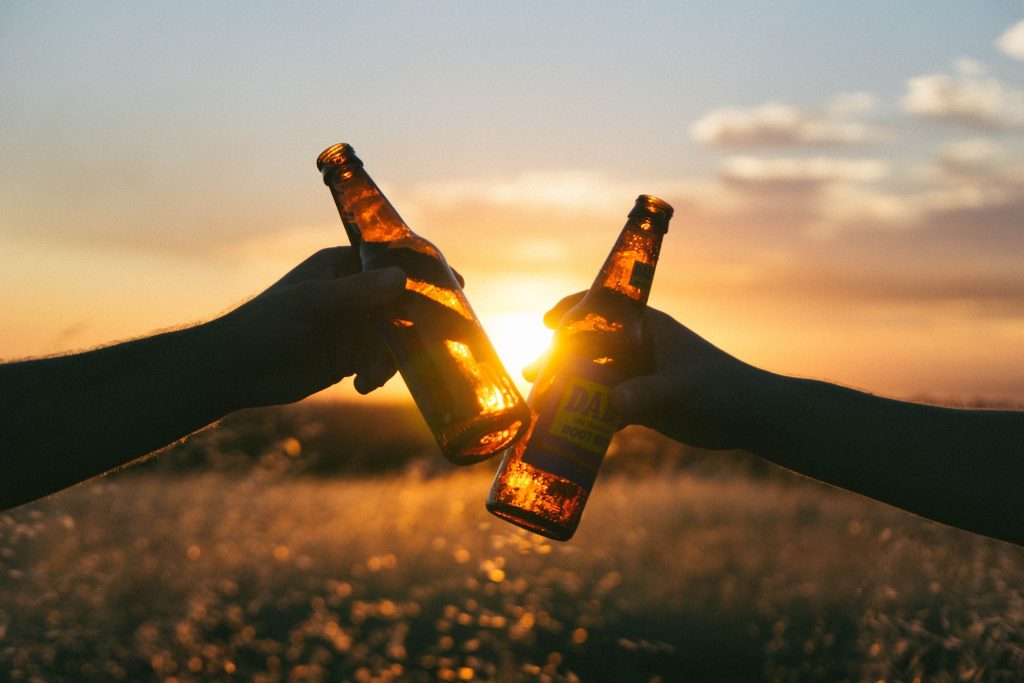
8. People in Iceland eat ‘weird’ food
Weird food is subjective, but by most standards, Icelandic food is very weird. Most people would quiver at the thought of eating things like fermented shark or blood pudding, but not a local Icelander. These things are just part of the everyday cuisine in Iceland and won’t scare any Icelandic people.
Some of the more popular Iceland’s staple meals include fermented shark (Hákarl), which, as the name implies, is shark meat which has been left to ferment for several months and blood pudding (Slátur), which is made of sheep innards, blood and fat, which is usually eaten with sheeps head (Svið).
There is also ancient favourite like sour ram testicles (Súrir Hrútspungar), as well as minke whale meat which can either be eaten raw or cooked, plus a host of others that are unique to Iceland and would need some getting used to.
If you would like to try some of Iceland’s cuisine, you can find options at local markets in towns around the country. You can also find some hot spring rye bread on your travels. This type of bread is made by burying the dough in casks near hot springs and allowing it to be cooked by the natural heat of the hot spring. This usually takes between two and three days.
Most of these foods were invented out of necessity brought by the poor economic situations at the time and are not as widespread today. So, before you judge them for their weirdness, spare a thought for the poor farmers who had little choice but to eat these…delicacies.
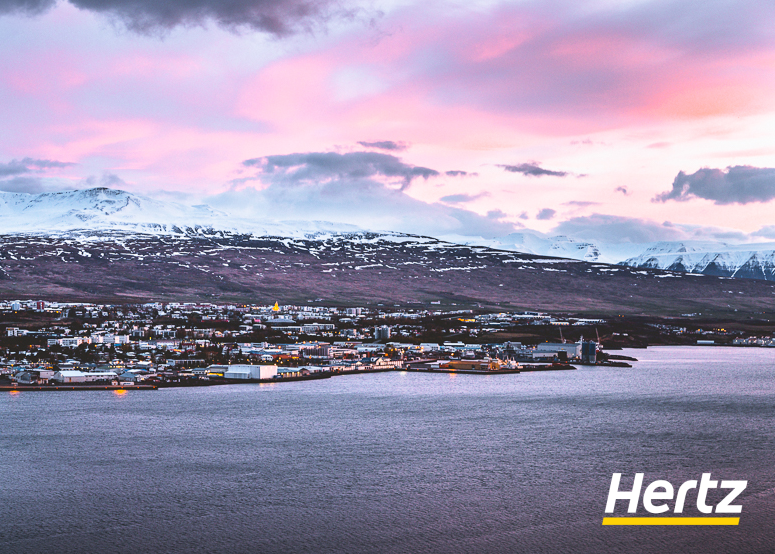
9. Icelanders often speak on their inhale
One unique inflexion of the Old Norse language spoken throughout Iceland is the ability to speak or produce sound while inhaling rather than exhaling (as is common with most other languages).
This vocal trick is easily noticed when words like “Ja” and “Jaeja,” which translate to “yes” and “well,” are pronounced by local speakers. Iceland shares this language quirk with some of our other Nordic neighbours, including Denmark and Sweden.
Something like this:
10. Nudity is very normal in Icelandic culture
In Iceland, the concept of nudity is highly normalized, especially because bathing and enjoying the thermal pools are such a big part of Icelandic culture. In ancient times, Icelandic people readily get into the pools around them, wearing nothing but big smiles.
Even though all public swimming pools and hot springs have rules for wearing swimsuits, It is, however, compulsory to take a bath before getting into the pools in Iceland for safety and hygiene reasons. While some pools have private areas for bathing, others do not, and you will likely have to bathe in the company of other guests in the swimming area. It might sound daunting, but once you’re actually there, you’ll find that there’s nothing to worry about.
Iceland’s culture is very open, and the human body is treated as exactly what it is, a human body. There is none of the judgement or tension that often occurs with public nudity in other cultures.

Icelandic people: 10 facts about Icelanders and our culture
Iceland people live in one of the most beautiful and unique places in the world. The culture is unlike anything you’re likely to see anywhere else, and it is worth the trip just to experience it, even if just once. Whenever you decide to visit, remember that a self-drive trip with a rental car is the best way to fully enjoy everything Iceland has to offer.
Rent a car with Hertz Iceland online and in advance to ensure you get the perfect vehicle for your trip, enabling you to experience the local culture in the different towns around Iceland.
